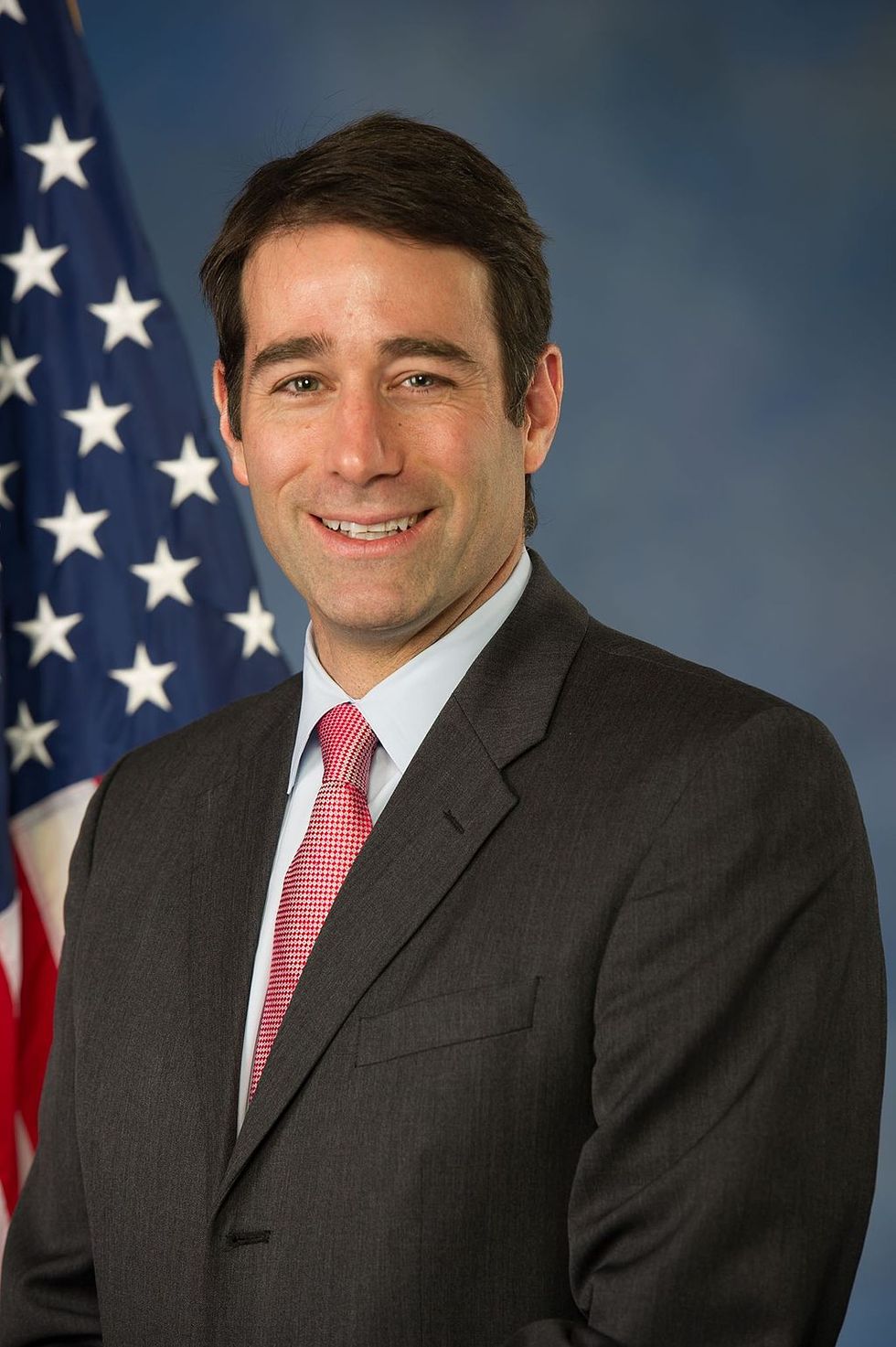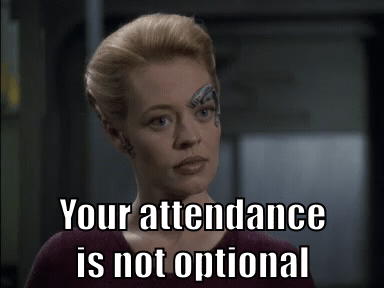This interview was conducted via phone in the fall of 2015, but the questions and responses remain relevant, and will be so for the foreseeable future.
The Representative: Garret Graves was born in Baton Rouge, Louisiana to a family of small business owners and entrepreneurs. He graduated from Catholic High School before attending the University of Alabama, Louisiana Tech University and American University. Following college, he moved to Washington D.C. to begin a career in politics. In 2008, he was appointed to Governor Bobby Jindal’s cabinet as Chairman of the Coastal Protection and Restoration Authority (CPRA), where he successfully handled three hurricanes, a massive flooding of the Mississippi River, and the largest oil spill to ever occur in this country. Also, during his tenure, Congressman Graves created a $50 billion, 50-year plan to improve both coastal restoration and hurricane protection. In 2015, after a run-off election with Governor Edwin Edwards, Congressman Graves was formally elected to the House of Representatives from Louisiana’s sixth congressional district.
The interviewer: Olivia Shaffett was born in Baton Rouge, Louisiana in 1995, and is majoring in History at Louisiana State University. She is a member of the Chi Omega sorority, and serves as a Volunteer Advocate for Baton Rouge’s Sexual Trauma Awareness and Response (STAR).
Odyssey: What actions have you taken in Congress or causes have you championed to improve the lives of college students and recent graduates in your district?
Rep. Garret Graves: First of all, in my previous life I worked on the Coastal Program for the state of Louisiana, so hurricane protection, coastal restoration, the oil spill and things along those lines. When I was there, we created a Coastal Assistantship Program, where we gave a stipend and helped to encourage students to get involved in coastal curriculums and coastal degrees. We also brought them in to our organization to give them exposure to a lot of the projects and engineering and other things we were doing. I helped to create the Water Institute in Baton Rouge.
In fact, next month we will be putting a shovel in the ground to begin building the Water Campus over by the new Mississippi Bridge, in between campus and that bridge. With the billions of dollars we are spending right now on coastal projects, it’s designed to give a venue for collaboration between government in this industry and engineers and others to really take a leadership role, not just in Louisiana, but globally on coastal resiliency issues as we have things like sea rise and other challenges around other communities and water management, Louisiana will really be a leader, and so again establishing this center and getting students from LSU and other campuses who have degrees and who have interests in biology, civil engineering, environmental issues and coastal issues. It gives them an opportunity to play a global leadership role. Lastly, we have been carrying out numerous internships with in our office in D.C., within our offices in Louisiana, and we established an office on the Nicholls State University campus trying to bring folks in, and we have been working on a number of issues here related to the national debt and others just to ensure that future generations are going to have job opportunities that are not going to be saddled with debt and overregulation, that will make the U.S. uncompetitive.
Odyssey: Increases in college tuition have been outpacing inflation for a few decades, and now the amount of student loan debt has surpassed the credit card debt held by all Americans. What specifically can Congress do to rein in these costs?
Rep. Graves: I was just at LSU on Monday and we did a forum with students where we posted on our Facebook page and invited anyone who wanted to come to come join us for breakfast, and we paid for it. We did it at the Union on Monday morning, and the idea was to have discussions on issues college students wanted to discuss, and this topic came up.
There was discussion about how the state cutting funding and how that affects LSU’s performance and opportunities and look, I think the way that the state budget is set up right now is flawed and you can’t balance the budget on education and healthcare like we are doing in Louisiana right now, I think that is a fundamentally flawed approach. However, I think it is also important not to just to dump Money back in to universities, I think there needs to be a relationship between performance and funding. You need to incentivize universities to perform, you need to incentivize efficiently and effectively say, “look we will provide more funds to those universities who are graduating the highest percentage of students, the universities who are preparing students for the workplace.”
You have to have incentives with the funding. One program I have been pushing, dating back to 2009, I’ve been meeting with CEOs and other companies around Southern Louisiana trying to create a transition between higher education and the workforce. Why is it when someone graduates from college they are pushed out of the nest like a little bird learning to fly? Instead, when you are a freshman in college, how about having 10 percent of your time actually working with companies in the field of your major and having the money that, that student would be earning and either giving it to the universities to defray tuition cost or to pay it to the student so that they can direct it towards tuition? When you are a sophomore you can bump it up to 15 percent or 20 percent, and bump it up even more as a junior or a senior.
That way you are providing more funds in education, and you’re allowing more interface between real companies and the real workforce in college, instead of having this abrupt change into the workplace when you have never experienced it before. It gives students opportunities to interview employers over a long period of time, and it gives employers the opportunity to interview potential employees over a longer period of time as well, and it allows people to ensure that they are following the right major and the right career path that they want. Also, you have that benefit of providing funds for tuition and for the student to help defray the cost of education. I think we have to change the whole narrative there on how the educational experience goes.
Odyssey: Beyond these, which three political issues affecting 18 to 30-year-olds aren’t being talked about enough?
Rep. Graves: One of the biggest things is the national debt. I’m sure you have heard it said, Olivia, that current generations aren’t given the same opportunities for success as their parents or their grandparents, and that this is one of the first times that this has happened. There are a few things I think that are being ignored. One is the profound impact the national debt is having and will have on millennials in future generations. The debt that we are all going to be saddled with as a result of irresponsible spending by the White House and by Congress, it is going to saddle this nation’s economy. It is going to saddle individuals going out into the workforce with such extraordinary taxes and debt that we will not be able to succeed and prosper on a global scale because the tax system here is going to be so burdensome.
We have to address the debt. Secondly, I think lack of recognition of what globalization is doing. I’ll dig in on that one a little bit more. You are seeing all sorts of regulations coming out of the Environmental Protection Agency, coming out of the Department of the Interior, coming out of all these federal agencies that it’s really making The United States uncompetitive. It is not making the playing field level.
So, what I’m saying is that when you take the cumulative effect of the United States’ tax policy, the United States’ labor policy, the United States’ environmental policy, it is more expensive and more burdensome and more complicated to do business in the United States than it is with these other countries, which means that these companies are going to be moving to other nations and taking job opportunities and employment opportunities with them. We have to understand that globalization as it’s occurring and with the pace it’s occurring, that this is not Louisiana competing against Mississippi and Texas. This is Louisiana competing against Mexico, Brazil, India, and China.
We have to understand that we cannot carry out all of these unilateral regulations without being cognizant of how that affects our ability to be competitive. The last one I think is workforce development, and the connectivity between what the actual workforce is demanding and how we are preparing students today. You have heard about this manufacturing renaissance in Louisiana where all these big companies and projects are coming to town. How are we working together with these employers to make sure that we are training students to be prepared for the jobs that are going to be available? Don’t go out there and take a “Field of Dreams” type of approach where you are just going to get educated in a certain type of field and expect there to be opportunities there. There has to be some form of connectivity between what it is the workforce is demanding and how we are training our students.
Odyssey: Congress has a notoriously low approval rating among Americans, regardless of the party in control. Why is the branch that’s supposed to represent the people thought of so poorly by them?
Rep. Graves: First of all, I agree. I think when you look at what is happening right now with the presidential candidates, you have all of these “anti-establishment” candidates. These people who are bashing government like Ben Carson and Carly Fiorina and Donald Trump and Ted Cruz. Those are the folks that are getting the higher poll numbers on the Republican side, and I think it shows there is a huge anti-establishment sentiment.
I ran for Congress, and it was the first time I have ever ran for anything, and I ran largely out of frustration and how dysfunctional, inefficient and how disconnecting the Federal Government was. I think you have a somewhat flawed structure on how Congress actually operates in relation to the House and the Senate and the relationship between Congress and the White House. I’ll tell you the biggest thing; I think that members of Congress in some cases are not taking seriously enough the fact that they are supposed to be representing their constituents.
You know, I am Representative Garrett Graves, and the only way you can represent people is by spending time with them. You can’t represent what you don’t know. I made reference earlier to how we started this “Grub with Garrett” thing where we do breakfast across south Louisiana with people and just invite anybody. We put it up on social media, and say the first ten people or fifteen people, whatever it is, can e-mail this email address and we will invite you to breakfast. We pay for it and we will talk for about an hour or an hour and a half about anything you want to talk about. That way you are not putting yourself on a pedestal or isolating yourself from constituents.
You have to know what is on people’s minds, what the live issues are, what they want you to do, and how to get your marching orders. The way to do this is to engage with people. We do these breakfasts, we do open office hours, we do town hall meetings, we call 5,000 people and spend an hour or so on the phone with him, we joined running groups where we literally run a 5K in Baton Rouge or Thibodeaux or other places. We literally talk about issues while we are out there jogging. So, we are doing everything we can to engage people, and I think that’s one of the biggest things is just having connectivity and access. So, we have been really trying to find some new and innovative ways to do this. People are tired of the kind of elitist politicians, and that’s not how this is supposed to work. You have to be communicating with people if you are going to represent them.
Odyssey: That sounds like a great initiative.
Rep. Graves: It has been great, and really some of the best ideas come from people who offer a fresh perspective.
Odyssey: What’s one specific policy issue on which you’ve bucked your party’s position?
Rep. Graves: Well, one thing is most Republicans, in fact virtually all of them, have refused to acknowledge that climate change is happening, and based upon my previous life and doing coastal issues, we have observed changing in climate. Most specifically would be the sea rise as we have actually measured the sea rise in south Louisiana. So, to put your head in the sand and ignore that this is happening, I think is a real mistake for any party.
In a state like Louisiana that has such a gradual sloped coast where even if you have waters rise six inches, that will have significant consequences across south Louisiana, and so that’s one place where we have taken a position that is not consistent with the part.
On the highway bill we tried to find ways to ensure that we establish a solvent transportation program where we can get additional dollars to put into transportation projects and interstates and highways to try to relieve some of the traffic problems. We have been very aggressive about the need to increase funding while respecting the fact that we can’t raise taxes.
So, we have been very vocal about that. There are a number of issues. I did not come here to represent a party. I certainly try and have good relationships with all the leadership people in charge and everything else, but that is not why I am here. I am not here to represent a party. I am here to represent people. There are 700,000 plus people in south Louisiana, and that’s where my marching orders come from. So, my votes have not been a hundred percent in agreement with the Republican Party or the Speaker or others as we do what is right for the district.
Odyssey: In your current position, which vote do you most regret making and why?
Rep. Graves: I have only been here for nine months, and certainly I will say that there have been some votes where it has been a close call in terms for what is best for south Louisiana. There are some votes where I think I could have made an argument either way. It provides too much funding for this program, so I want to vote against it, but it also provides funding for this other program, which is really critical for south Louisiana. So, how do you look at those things and determine which way to vote? I have had a number of close calls on votes, but right off the back a specific vote I regret making, I think just being here nine months is probably premature. Let’s talk again next year and I’ll let you know how things play out or if something didn’t happen the way I thought it would.
Odyssey: Since 1965, who was the best president not named Ronald Reagan and why? [The question was asked this way to remove the most likely choice for the Republican congressman. Democrats Odyssey interviewed were asked the same question, excepting Bill Clinton and Barack Obama.]
Rep. Graves: You took the easy one off the table, huh? You know, when you take Reagan off the table and you look at some of the presidents that are out there, I don’t think that, that batch of presidents since 65 are necessarily some of our top tier presidents. I think among those, and I want to make sure to press this properly, as I think what Richard Nixon did with Watergate is absolutely unacceptable.
I think you can’t ignore what happened there, but looking at his actual accomplishments, I think when you look at things such as engagement with China, trying to change the paradigm there to some degree, and he to some degree kicked off the war on cancer, which is something that is critical for this country. President Nixon was a big proponent of the 26th amendment, which lowered the voting age that allowed 18 year olds to vote and give them access to representation.
But I don’t want to sit here and be a partisan. If I am going to sit here and cherry pick Nixon’s performance, I’ll tell you and this may be a surprise, but I can actually cherry pick some things out of Bill Clinton’s performance. I thought Bill Clinton, and while I want to be clear that I did not vote for him, I thought that Bill Clinton was a good communicator with the public, which I think is important, and it was a skill that Ronald Reagan was excellent at. Something that comes to mind in regards with what President Clinton was involved with is the welfare reform bill, which I believed he did in 1996.
It was actually something he advocated for during his campaign to put an end to welfare as we have come to know it, and I respect him for stepping out and getting involved in something that may not seem to be consistent with Democrat ideology, and so I think you can go through and cherry pick different highlights from different Presidential terms and find some good ones there.
Odyssey: Which interest group or lobby has the most undue influence on Capitol Hill, and why?
Rep. Graves: That’s easy, Republicans and Democrats. That may not be the answer that you are looking for, but I think that fits the term “undue influence,” or influence that is not warranted, and I will go back to what I said on an earlier question. You know, I came here to represent the people of south Louisiana and yes, it is a conservative district, and in many instances what is best for south Louisiana is consistent with Republican ideology. But, the influence that the parties have through funding and through committee positions and whether they are going to hear your bill and whether your provision is going to be added to a bill and all of those things, that’s where I think there is undue influence.
I came here to represent people and not a political party, and I think that you dilute the ability of a member of Congress to represent their constituents, to represent in our case 700,000 plus people, if you vest all of this power with in the party and with in the party leadership, and not within individual members of Congress. You probably were looking for a specific interest group but it is the political parties that are the biggest problem. They are the ones who often make things divisive.
Odyssey: The gap between the rich and poor continues to get bigger and is on many people’s minds, so what statistical indicators do you use to analyze this? And what is your solution?
Rep. Graves: I think statistical indicators would be, one, how much money we are spending on the war on poverty and creating pathways to prosperity for the poor and the impoverished, and how much money we are spending, what are the efficacies of these investments and what are the trends of these investments? You look at that data, and we are spending record amount of money on these programs and there are more people in poverty now percentage wise and number wise than any other time before. We are losing the war on poverty. Our efforts, our strategies to create pathways to prosperity are not working, and you almost wonder in some cases if these programs aren’t being run in a way to keep people there in poverty.
So, here’s what I would do for solutions. I’ll tell you we are working with a little group here and trying to get to a place where can file legislation on this, and it’s going to be months away if we can get this done. I think there is a win here, so if you take a step back and think how virtually every aspect of your life can be subsidized by government. There are programs that subsidize transportation and we subsidize education, we subsidize health care, we subsidize food, we subsidize housing. I mean you can name it and there is a program out there that subsidizes these efforts. Yet, when you take them all cumulatively and the trillions of dollars we have spent, we are still losing the war. What are these investments being made for, if we are just losing the war?
We are just throwing this money away needlessly and we need to take a step back and look at the programs we are funding. We need to look at what non-profits and non-government agencies are carrying out, whether its churches or other groups and which of these programs are actually creating pathways to prosperity for the impoverished or anyone? Which programs are actually creating opportunities for people? We need to be putting additional money into the programs and into the strategies that are working, and we need to stop putting money in all these programs which are not working across the spectrum of the programs I mentioned and the dozens I did not mention. I think that the reason I am excited about this is because if you are a Republican and you are a fiscal conservative, then I think you will realize over the long-term the significant costs savings by stopping all of the spending and wasted funds for some of these programs that are not working or not producing results.
I think if you are a Democrat or more liberal, you get a benefit because in many cases Democrats are the ones representing the cases of the impoverished, you are creating pathways to success and pathways to prosperity. So, I think there is a real opportunity for win-win here. So, we are trying to work with a bi-partisan group to come up with some solutions here or at least a pilot program to see if we can actually demonstrate the effectiveness of taking a different approach on the war on poverty.
Odyssey: So you think this will benefit both parties?
Rep. Graves: Absolutely. I think this is a bi-partisan win, and the devil is in the details, but there is an opportunity for a win-win. We have to break that cycle of poverty.
Odyssey: What does the word “equality” mean to you and how do we achieve it as a country?
Rep. Graves: Equality, to me means equal opportunity. Everyone is given an opportunity to succeed. A couple of thoughts that come to mind are one, my father, as my paternal grandfather died when my dad was 15, 16 years old so he was able to work himself through high school, through college and get an engineering degree and now has his own company. He was able to overcome some of the adversity and the challenges he faced. Ben Carson, someone who is getting a lot of recognition out there now, and whether you support him or don’t support him for President is irrelevant. The guy has got an amazing story about how he grew up, the environment he grew up in, an impoverished environment with a whole gaggle of kids and went on to become this world-renowned neurosurgeon, and is now running for president.
I mean how many people would have looked back at Ben Carson as a toddler and looked at him as a teenager and said “this guy is going to be a top tier Presidential candidate one day?” How awesome is that? So, equality to me means that we are providing equal opportunity for people to achieve their goals and their definition of success.
Odyssey: Finally, if you could have a drink with any non-politician dead or alive, who would it be and what would you drink?
Rep. Graves: I think that hands down, and I hesitate to say it because I don’t want to appear cliché, but if I had the opportunity to pick anyone living or dead to have a drink with it would have to be Jesus. What an amazing opportunity that would be, and I would have questions for weeks and weeks, and because it’s Jesus I would probably have to drink red wine right?
But, you know if you were to take some of those options off the table as you did on the presidential question earlier, I was recently reading a bio about Mae Jemison, who is a doctor and an astronaut. She is the first African American astronaut and she flew aboard The Endeavour. I really have an intrigue and a strong interest for some of those people who broke barriers, those people who were somewhat contrarians in some instances and came out and took a different pathway and changed the narrative. I have a lot of respect for people who have done that and I would really love to have the opportunity to hear their stories and hear their motivations and some of the experiences they went through to break these barriers.


















































